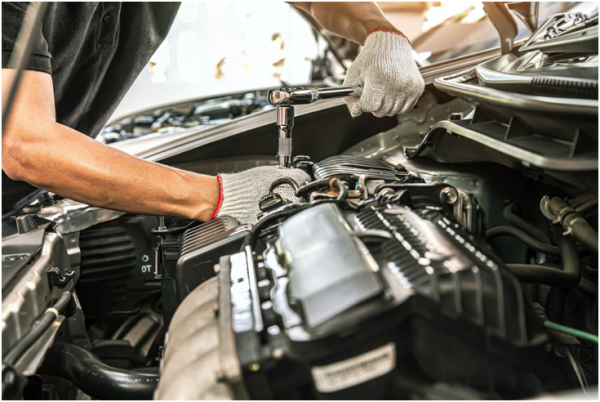Whether you’re repairing vehicles, working on special projects, or just like to play around in the workshop, having the right tools is an essential part of the job. The right set of mechanic’s tools is necessary for maintaining, troubleshooting, and repairing any vehicle. Mechanic’s tools range from tools that help diagnose problems to specific/specialized tools to handle any job. Basic hand tools (wrenches, screwdrivers, ratchets), compression gauges, oil filter wrenches, spark plug socket sets, and plenty of different power tools. The right tools make repair jobs better and faster. Plus, you likely won’t have to buy the same tools twice. Whether you’re a seasoned mechanic or an eager hobbyist, here is a guide to the essential tools you need in a mechanic’s workshop.

Basic Hand Tools To Get
When it comes to essential tools, you can’t go wrong with a good set of hand tools. Hand tools—screwdrivers, wrenches, pliers, ratchets, and hammers—are among the most essential tools to keep in your workshop. A comprehensive set of lightweight, ergonomic hand tools is all part of the package when it comes to setting up an effective workshop. As a mechanic, you’re going to have to remove bolts and lug nuts at some point. You’re also going to adjust various parts of a vehicle, change tires, replace parts and much more.
The right, high-quality hand tools are crucial here. Invest in a good ratchet set, with a wide range of different bits. Get several screwdrivers of varying lengths and with different bits (flathead, Philips, star, Torx, etc.). Wrenches and Allan wrenches, in a variety of different sizes, are critical for adjusting/loosening bolts. You also need a good pair of pliers (needle nose, vise grip and bolt cutters). Hammers can also be useful in a workshop, especially for shaping metal and breaking out tough objects while working on a particularly challenging job.
The Right Power Tools For The Job
An indispensable part of any workshop power tools are critical to helping streamline certain jobs and get them done properly. Every mechanic will likely have impact wrenches, air compressors, and drills sitting around their workshop. Using power tools doesn’t just make a mechanic more productive; they’re fun to use too!
They’re also useful for saving time during any job. In addition to drills and impact drivers, most mechanics should also have an angle grinder, a power saw, and an impact wrench. What makes power tools such an integral part of your workshop is the efficiency they provide and the power they give you to tackle dangerous or difficult jobs. Safety should be a top priority when working with power tools. Always wear proper safety gear, goggles, gloves, and a dust mask if you need one. Using the right powerful mechanics tools for the job is also vital, so be sure to fill your workshop with the best possible power tools suited to the kind of work you do.
Some Specialty Tools You Need
Every workshop needs some special tools. That is, they require tools suited to a specific job, need or purpose. What are some of these tools? Other than something like a torque wrench or a puller, you have a fuel line disconnect tools that help you work on a fuel system. There are oil filter wrenches that are specifically designed to remove and attach oil filters on vehicle engines. Brake adjustment tools help mechanics do some of the importance detail work that brakes require.
Wheel bearing sockets secure wheel bearings and adjust them. Spark plug socket wrenches help aid in the process of installing and removing spark plugs. There are many other specialty tools, so assess your needs and make the appropriate choices to stock your workshop. Specialty tools play a pivotal role and repair and maintaining vehicles. Having a specific tool for the task makes your life easier and ultimately leads to being better equipped to handle any repairs that life throws your way.
Storing and Maintaining Tools
As we mentioned above, storing and maintaining tools properly should be an significant part of organizing your workshop. It’s important to know how to use them properly and store them effectively. Keeping them in their original storage cases, keeping them in a clean, low heat environment and maintaining them is critical to making them last. Keep them clean. Sharpen blades once in awhile. And always replace or repair broken items. By going the distance and keeping your tools in good condition, you’ll ensure they’ll be around when you need them and ready to help you take on any task in your workshop.
Conclusion

If you want to be successful doing any type of automotive repair, using the right tools is critical. Investing in the right tools, ensuring their quality, and storing / maintaining them properly will extend their life and ensure they’re available whenever you need them. As a wise plumber from a failed 1993 video game adaptation once said, “Treat your tools like a friend. Keep ’em by you. Lever let ’em down, and they’re always at your side.” And although the film absolutely tanked at the box office, that quote makes a lot of sense in real life. So take care of your tools, store them properly, use them well and always remember to invest in quality first.

